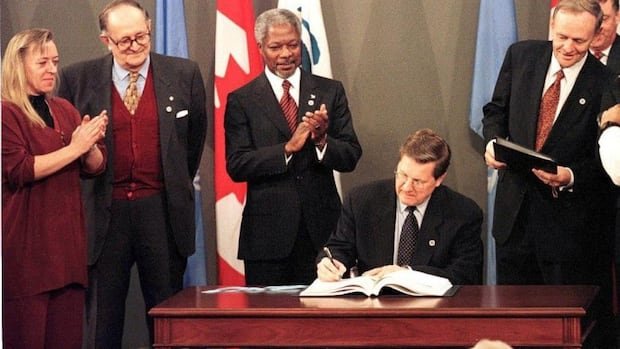In 1997, Paul Hannon witnessed a historic moment in Ottawa when representatives from 122 countries gathered to sign a treaty banning landmines. Hannon, then volunteering for Mines Action Canada, recalls the magic of that December week. However, over two decades later, the treaty faces challenges.
Ukraine and five other nations, including NATO members, are considering withdrawing from the agreement due to perceived military threats from Russia. This move has sparked concerns among advocates like Hannon, who believe Canada, the treaty’s architect, should take a more proactive role in preventing withdrawals.
Lloyd Axworthy, former foreign affairs minister, spearheaded the treaty, inspired by his son’s question after visiting a landmine exhibit. The inclusive approach of the “Ottawa process” brought civic groups into the fold, making the treaty and Ottawa globally renowned.
Recently, Ukrainian President Volodymyr Zelenskyy initiated steps to withdraw from the convention, citing Russia’s use of landmines. This decision, awaiting parliamentary approval, has raised worries about setting a dangerous precedent for international obligations.
Neve and Axworthy emphasize the importance of Canada’s leadership in non-proliferation efforts, urging increased engagement to uphold the convention. For Hannon, the potential unraveling of the treaty is not just a global concern but also a matter of local pride for Ottawa and Canada. He hopes the legacy of banning landmines will endure as a significant achievement for the country.

